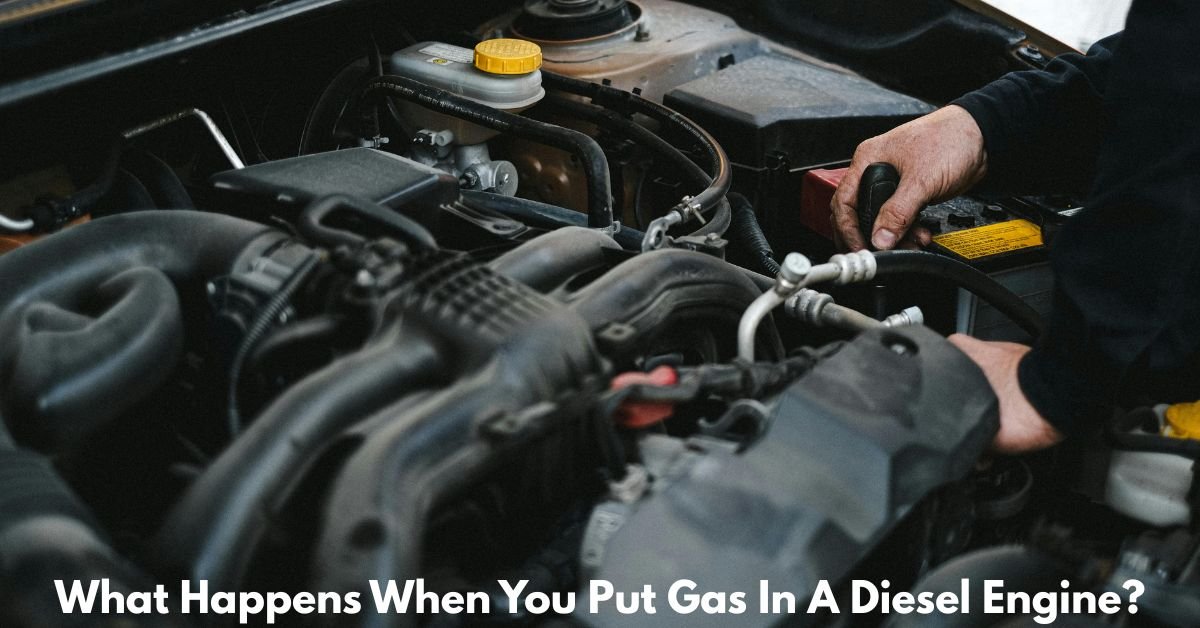Most vehicle owners know there’s a difference between gasoline and diesel fuel, but not everyone fully understands just how crucial that difference is. Accidentally putting gasoline into a diesel engine is a mistake that can lead to serious — and expensive — consequences. If you’ve ever wondered what happens when gas goes into a diesel engine, this post breaks it down.
What Happens When You Put Gasoline in a Diesel Engine?
Why Diesel and Gasoline Don’t Mix
Before diving into what happens, it’s important to understand how diesel engines and gasoline engines work.
- Spark plugs are used in gasoline engines to ignite a mixture of fuel and air.
- Diesel engines rely on compression to ignite fuel. They don’t use spark plugs; instead, they compress air to such a high degree that when diesel is injected, it ignites due to the heat of the compressed air.
Diesel fuel is thicker, more oily, and has lubricating properties that gasoline lacks. Gasoline, on the other hand, is more volatile and evaporates quickly.
What Happens When You Put Gasoline in a Diesel Engine?
- Immediate Engine Problems
When gasoline is introduced into a diesel engine, it disrupts the combustion process. Diesel engines rely on the proper timing and properties of diesel fuel to function. Gasoline ignites more easily, which can throw off the engine’s compression ignition cycle. - Lack of Lubrication
The engine’s fuel system parts, such as the injectors and fuel pump, are lubricated by diesel fuel. Gasoline lacks this lubricating quality. Running a diesel engine on gasoline can cause these parts to overheat and wear out prematurely due to increased friction. - Potential Engine Damage
The more gasoline that enters the system, the greater the risk. Running the engine with a significant amount of gasoline can lead to:- Knocking or pinging sounds
- Misfiring
- Overheating
- Injector damage
- Severe engine wear
In the worst-case scenario, this can lead to complete engine failure, which could require a full engine replacement.
- Smoke and Performance Issues
Because gasoline combusts differently than diesel, you may notice excessive white or gray smoke from the exhaust, poor acceleration, rough idling, and stalling. - Damage to the Fuel System
Modern diesel engines have high-pressure fuel systems. These are finely tuned and sensitive to the type of fuel they use. In addition to harming the fuel pump and injectors, gasoline can erode gaskets and seals. In most cases, the entire fuel system will need to be flushed or repaired.
Must Read: What Engine Does The Honda Elite SE50 1987 Have?

How Much Gasoline is Too Much?
A very small amount of gasoline — say, less than 5% of the total tank — might not cause immediate catastrophic failure, especially if you catch the mistake early and dilute it with diesel. However, going beyond that could be risky. If you suspect you’ve put gasoline in your diesel tank, do not start the engine.
What to Do If You’ve Put Gasoline in a Diesel Engine
- Do Not Start the Engine
Fuel will circulate when the engine is started, worsening the damage. The sooner you act, the better. - Tow the Vehicle to a Mechanic
Have the vehicle towed to a qualified mechanic or service center. Do not try to drive it. - Drain the Fuel System
A mechanic will likely drain the fuel tank, flush the fuel lines, and inspect for any damage. - Replace Fuel Filters
In most cases, fuel filters will need to be replaced. This helps remove any remaining gasoline residue.
Preventing This Mistake
- If you operate a diesel car, mark the fuel cap.
- Always double-check the pump before fueling.
- Educate new drivers (especially teenagers or fleet drivers) about the importance of using the correct fuel.
Final Thoughts
Putting gasoline in a diesel engine is a serious mistake, but it’s more common than you might think — especially in rental vehicles or for new diesel car owners. The key is to avoid starting the engine and get professional help as quickly as possible. With prompt action, you might avoid severe damage, but the best fix is prevention.
